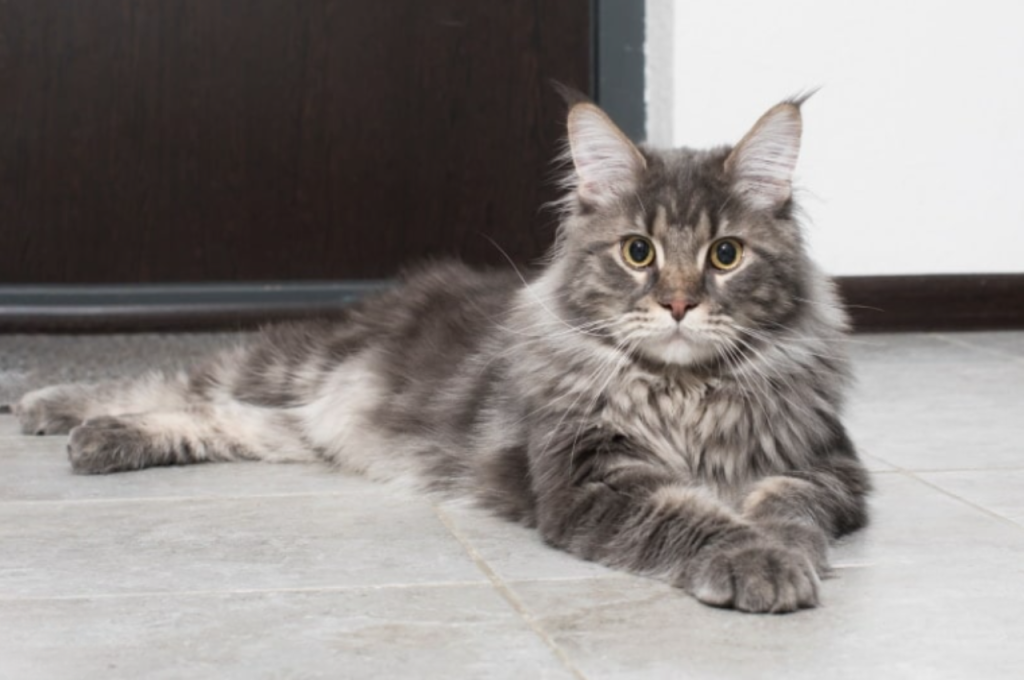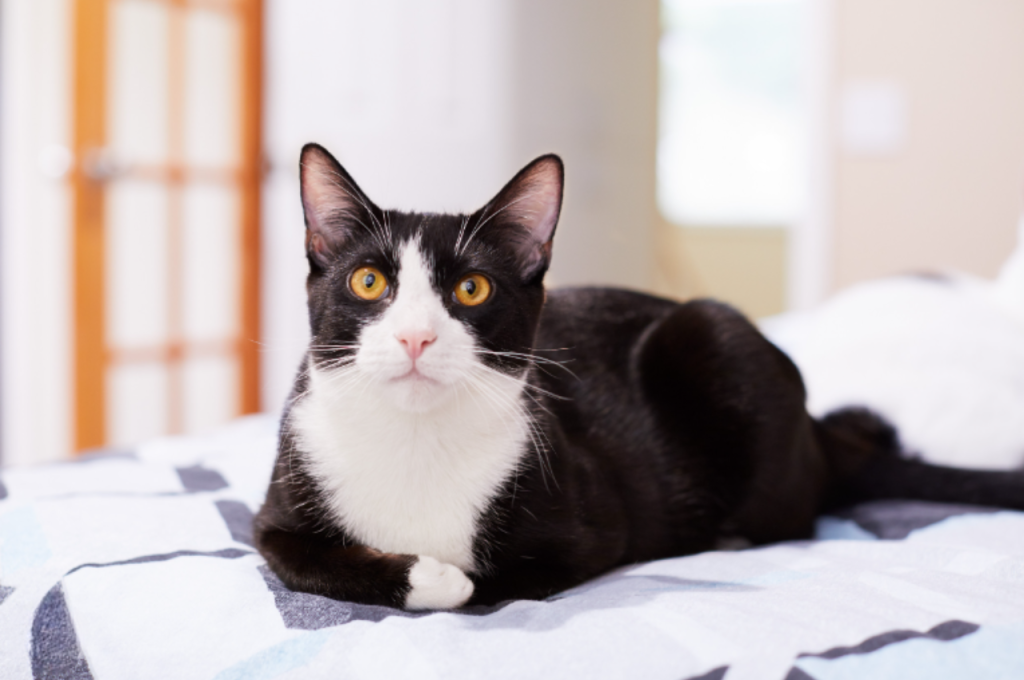Cats, beloved pets known for their independence and mysterious nature, are often given names by their owners to reflect their unique personalities. While some cats may acquire nicknames or aliases over time, they do not have multiple official names. In most cases, owners choose a name for their feline companion that resonates with them and suits the cat’s appearance or behavior.
From witty monikers like “Whiskers” or “Mittens” to elegant names such as “Luna” or “Oliver,” these names become the identification and individuality of their feline friend. With their distinct personalities and charming mannerisms, cats captivate our hearts with just one name.
The Concept of Cat Names
The Concept of Cat Names delves into the significance of naming feline companions. While cats may not have three names in the traditional sense, they often acquire various titles based on their personality, appearance, and the names their owners give them. Understanding the importance of cat names helps strengthen the bond between owners and their beloved pets.

Origin of Feline Names
Their names often reflected their behavior, appearance, or connections to mythology. This historical naming tradition highlights the significance of cats in various cultures and the enduring bond between humans and felines.
Significance of Names In Feline Culture
- Names hold symbolic importance in cat culture, reflecting their personality.
- Names create a connection between cats and owners, fostering a bond.
- Felines respond to their names, indicating recognition of identity.
Do Cats Really Have Three Names?
While cats may not have three distinct names like humans, they often acquire titles based on their personality, appearance, and the names their owners give them, reflecting the special bond between feline companions and their owners.
Exploring The Three Names Theory
- Cats are said to have three names according to a popular theory.
- The concept is intriguing and sparks curiosity among cat lovers.
- Let’s delve into this theory and uncover the mysteries behind it.
Historical Evidence of Three Names Usage
- Ancient civilizations believed in giving cats three distinct names.
- This practice reflected the depth of connection humans shared with their feline companions.
- Through historical evidence, we can trace back this tradition of cat naming.
The Three Names of Cats
The Three Names of Cats Cats have a unique way of being known by multiple names – each holding a distinct significance. Understanding the three names of cats can provide insight into their individuality. Let’s delve into the fascinating world of feline nomenclature.
Barn Name: The barn name of a cat is the familiar, informal name used in everyday interaction. It may reflect the cat’s physical appearance, behavior, or simply a name the owner prefers. This name is often short and easy to pronounce, allowing for quick recognition. It’s what the cat is called at home, in the neighborhood, and among family and friends.
Official Name: The official name of a cat is the one found on its legal documentation, such as pedigree papers or registration records. This name is carefully chosen by the breeder or owner and typically reflects the cat’s lineage, breed, or other special attributes. Often formal and sophisticated, the official name holds a significant place in the cat’s identity.
Mysterious Name: The mysterious name of a cat is shrouded in secrecy and known only to the feline itself. It’s the name that the cat responds to internally and is believed to hold a deeper, spiritual meaning. This name is not spoken aloud by humans, but it is said to carry a profound connection to the cat’s essence. Understanding the three names of cats offers a glimpse into the intricate world of feline identity. From the casual barn name to the official designation and the enigmatic mysterious name, each contributes to the unique persona of these beloved pets.
Signs Your Cat Responds to Different Names
Discover if your cat recognizes different names by observing their response and body language. Cats may exhibit altered behavior, such as perking up or looking in your direction when called by alternative names. This signifies their acknowledgment of multiple names and can enhance your bond.
Observing Behavioral Changes
Cats are known for their unique personalities, and their response to different names can vary based on several factors. By observing your cat’s behavior when called by different names, you may notice distinct reactions, indicating that they recognize and respond to specific names.
Distinct Responses to Various Names
When calling your cat by different names, you may notice subtle behavioral changes that indicate recognition and response. These distinct responses can include immediate attention, tail flicking, or even specific vocalizations. By recognizing these responses, you can understand that your cat may indeed have multiple names.
Psychological Impact of Cat Names
The psychological impact of cat names is a fascinating aspect of feline behavior. While cats don’t have three names in the traditional sense, the name they are given can influence their behavior and how they interact with their human companions.

A cat’s name becomes a significant part of their identity, shaping their response and connection to their owners.
Bonding with Cats Through Names
Cat owners often develop deep and meaningful bonds with their feline companions. One way to foster this connection is by choosing a name for the cat. The act of naming a cat allows the owner to establish a personal and emotional link with the pet, creating a sense of closeness and understanding.
Names and Cat Personality Traits
The names given to cats can often reflect their unique personality traits. For instance, cats with bold and adventurous personalities might be given names that convey strength and independence, while more docile and affectionate cats may be named after soft and gentle qualities. It’s interesting to observe how a cat’s name can align and resonate with its individual characteristics.
Cultural Variations In Cat Naming Practices
When it comes to cat naming, there are fascinating cultural variations that shape the way people around the world name their furry feline friends. From naming rituals to superstitions associated with cat names, the act of naming a cat varies widely across different cultures. Let’s take a closer look at the intriguing cultural variations in cat naming practices.
Naming Rituals In Different Countries
In Japan, cats are often given names that reflect traditional and cultural values. For instance, names like Maru and Tama are popular choices. In Egypt, cats have historically held a special place and are often named after ancient Egyptian gods and goddesses, such as Bastet or Sekhmet. In Russia, cats are commonly given diminutive names, such as Masha or Vaska. Each country’s naming rituals provide insight into the unique cultural significance of cats.
Superstitions Associated with Cat Names
In many cultures, superstitions, and beliefs are associated with cat names. In Japan, it is believed that a cat’s name can bring good luck or bad luck. The Chinese culture sees naming a cat as an important decision, often with superstitious connotations surrounding the chosen name. Similarly, in Europe, there are beliefs that the name given to a cat can influence its behavior and luck, leading to careful consideration when choosing a name.
Choosing The Perfect Name for Your Feline Friend
Cats are believed to have three names: the given name, the family name, and the secret name known only to the cat. Choosing the perfect name for your feline friend is an important decision that reflects their personality and traits.
It’s essential to select a name that resonates with your cat’s unique characteristics to strengthen your bond with them.
Finding The Ideal Name for Your Feline Friend
When it comes to choosing the perfect name for your feline friend, there are several factors to consider. Cats have a mystique that captivates us, and their names can reflect their unique personalities and characteristics. In this article, we will explore some important factors to consider in naming your cat and provide you with helpful tips to find the ideal name.
Factors to Consider In Naming
- Appearance: Take a moment to observe your cat’s physical appearance. Do they have striking markings or a distinctive coat color? Naming your cat based on their appearance can be an excellent way to highlight their unique features. For example, a cat with black fur could be named “Midnight” or a cat with orange fur could be called “Pumpkin.”
- Personality: Each cat has its own personality traits. Some cats are mischievous and playful, while others are calm and reserved. Consider your cat’s personality when selecting a name. A curious and energetic cat might be named “Whiskers,” while a calm and gentle cat could be called “Serenity.”
- Breed or Origin: If your cat has a specific breed or comes from a particular geographical region, you can find inspiration for their name. For example, a Siamese cat could be named “Mei Li,” which means beautiful in Chinese. A Maine Coon cat from Maine could be called “Baxter,” after the popular town in the state.
- Pop Culture References: Harness the power of pop culture by naming your cat after a beloved character from a book, movie, or TV show. From “Luna” (Harry Potter) to “Simba” (The Lion King), there are countless iconic names to choose from that will resonate with both you and your feline friend.
Tips for Finding The Ideal Name
- 1. Simplicity is Key: Choose a name that is simple and easy to pronounce. Cats respond best to short, crisp names, so avoid long and complicated ones.
- 2. Avoid Common Names: Opt for a name that is less common, as it makes your cat stand out. This also helps prevent confusion if you have multiple cats in your household or if you frequently interact with other cats.
- 3. Consider Sound: Pay attention to the sound of the name you choose. Cats are responsive to certain sounds, such as the “ee” and “oo” sounds in names like “Milo” or “Lulu.”
- 4. Try it Out: Once you have a few potential names in mind, test them out on your cat. See how they respond to each name and choose the one they seem to connect with or enjoy hearing.
- Remember, your cat’s name will be with them for life, so take your time and choose a name that feels right. It’s a wonderful way to bond with your feline companion and create a lasting connection.
The Feline Naming Trend In Social Media
The Feline Naming Trend In Social Media reflects the growing trend of naming cats based on popular culture, memes, and internet trends. Social media platforms are influential in shaping cat names, with owners seeking unique and attention-grabbing monikers for their furry companions to share online.

Popular Cat Names on Social Platforms
Cats on social media platforms often have unique and trendy names.
- Positive Vibes
- Whisker Wonder
- Purrfectly Pawsome
Influence of Cat Naming Trends on Owners
Cat naming trends on social media influence how owners choose names for their own cats.
- Unique and Creative Names
- Reflecting Cat’s Personality
- Pop Culture References
Conclusion
To sum up, cats do indeed have three names – the given name, the scientific name, and the commonly used name. Understanding these names not only adds to our knowledge of these feline companions but also helps in better identification and communication about them.
